|
|
|
|
|
Interdisciplinary Japanese Studies On Site
|
DIJ Newsletter 75
Spring 2024
|
|
|
|
|
|
Welcome to the Spring 2024 issue!
|
March is the month when everyone in Japan waits for that one announcement: when will enough cherry blossoms bloom so that anthesis (kaika 開花) can be declared and the season of cherry-blossom viewing (hanami 花見) can officially begin? Due to global warming, many assumed that the dates would be earlier and earlier. In Tokyo, however, kaika will be announced more than two weeks later this year than last year ー the latest date since 2012. Meteorologists explain that global warming will only lead to significantly earlier anthesis in the colder north of Japan (Tohoku, Hokkaido). In most other parts of Japan, cherry blossom will even be delayed due to the lack of cold in the months before spring.
As you may have noticed, this edition of the Newsletter is also slightly delayed. This is not related to the weather but due to a great number of exciting events we are currently preparing and that we would like to invite you to. In this DIJ Newsletter we also introduce new team members, guests, recent publications, and Alumni news.
|
|
We hope you will enjoy exploring this edition of the DIJ Newsletter. If you haven't yet done so, you can subscribe to receive it directly to your inbox here. We also welcome your feedback and email address updates via email to newsletter@dijtokyo.org
|
|
From all of us at the DIJ, we wish you a pleasant cherry blossom season!
|
|
|
|
|
|
New Publications ・Gerade erschienen ・新刊
|
|
|
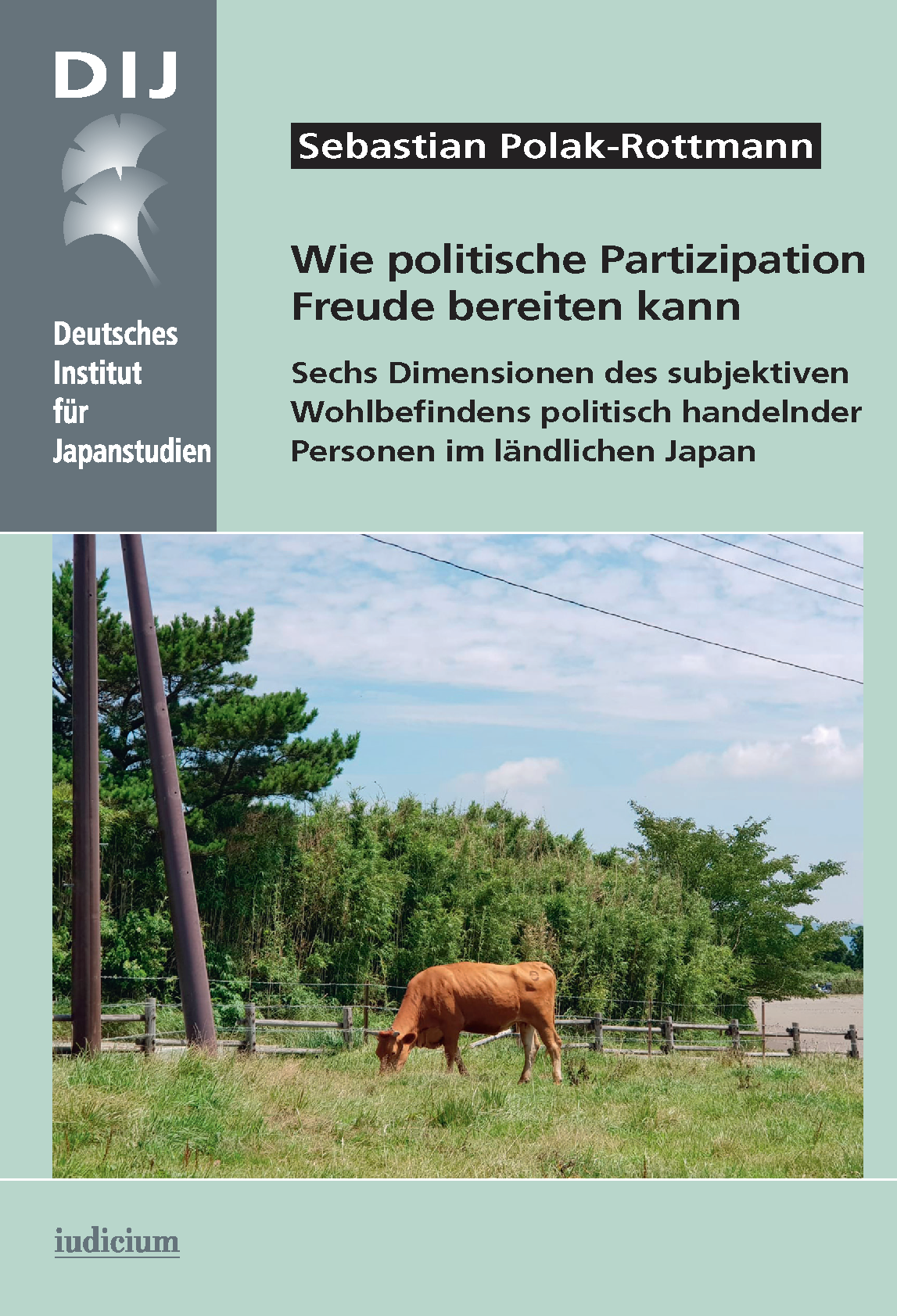
|
Cover © Iudicium
|
Book Studies Joy in Political Participation
|
|
What motivates people to get involved in politics in their free time? How can they derive pleasure from it? In this new book publication (in German), DIJ political scientist Sebastian Polak-Rottmann analyses how people in rural Japan try to change local society through a variety of activities, such as agricultural, political, and social work. Based on extensive fieldwork in southern Japan’s city of Aso (Kumamoto Prefecture), he concludes that mutual enjoyment is a core element of the well-being of politically active people in rural Japan. Wie politische Partizipation Freude bereiten kann (How political participation can be enjoyable) is published by Iudicium as volume 67 in the DIJ Monograph series.
|
|
|
|
|
|
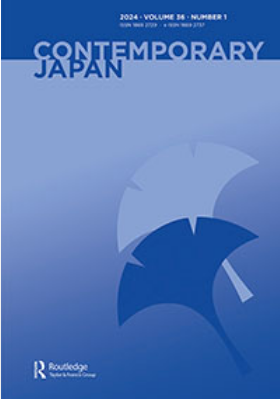
|
Cover © Taylor & Francis
|
First 2024 Issue of CJ Just Published
The new issue of Contemporary Japan contains a special section curated by Barbara Geilhorn on “Art and Regional Revitalization – Case Studies from Japan”. It features four research articles by Tagore, Funck & Qu, Platz, and Eckersall & Looser that assess how art festivals, exhibitions, and theatre in rural communities can “create new types of social, cultural and economic capital”. The issue also contains research articles on motherhood discourses and political activism (Dawood), women and organized crime in popular culture (Ropers), and conscription insurance in pre-war Japan (Jiang). CJ's first “Current Topic Commentary” article by Igor Prusa analyses the media rituals surrounding the Johnny & Associates sex abuse scandal. The book review section covers Japan’s nationalist right, a cultural analysis of Japan’s national character, immigration, and prison chaplaincy.
|
|
|
|
|
|
Recent journal articles, book chapters, and contributions to blogs by DIJ researchers:
|
- Carolin Fleischer-Heininger, "Zur Repräsentation von Autismus in Konbini ningen (2016) von Murata Sayaka: Relektüre aus Perspektive der Disability Studies". Bunron, No. 10, 2023.
- Markus Heckel, "Ein Bewertungssatz der Geldpolitik der Bank of Japan unter Kuroda: Ist mit Ueda eine Normalisierung der Geldpolitik zu erwarten?" Japan 2023. Politik, Wirtschaft und Gesellschaft, eds. David Chiavacci/Iris Wieczorek, Munich: Iudicium 2023, 144–160.
- Harald Kümmerle & Franz Waldenberger, "Japan’s ‘consensual’ variety of digital capitalism and its global relevance". Asia Pacific Business Review (5 March 2024, online first).
- David M. Malitz, "Karl who? – Haushofer, Japan and the Free and Open Indo-Pacific". TRAFO – Blog for Transregional Research (1 February 2024).
- Franz Waldenberger (and Kostiantyn Ovsiannikov), "Japans Gemeinden im demographischen Wandel: Eine quantitative Betrachtung". Japan 2023. Politik, Wirtschaft und Gesellschaft, eds. David Chiavacci/Iris Wieczorek, Munich: Iudicium 2023, 104–143.
- Torsten Weber (and Anke Scherer), "Geschichte und Geschichtsbewusstsein in Japan im Jahr 2022" , Japan 2023. Politik, Wirtschaft und Gesellschaft, eds. David Chiavacci/Iris Wieczorek, Munich: Iudicium 2023, 161–176.
|
|
|
|
|
Research News ・Neues aus der Forschung ・研究活動ニュース
|
|
|
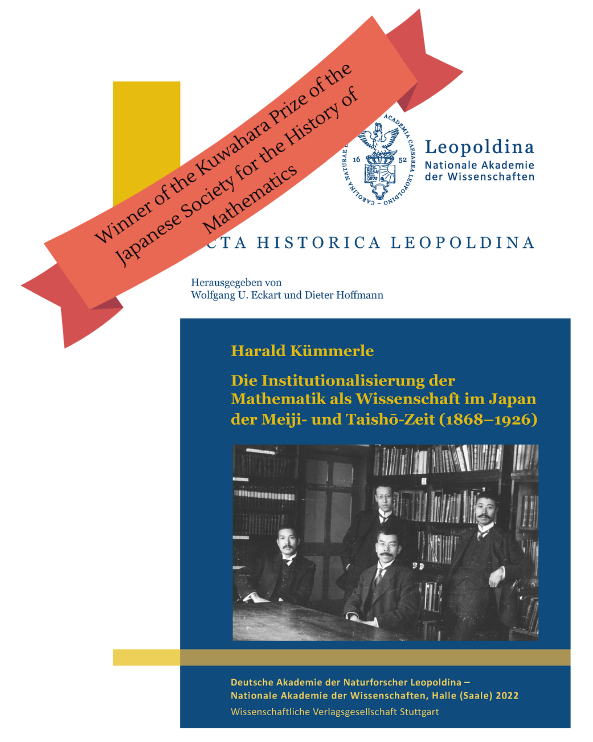
|
Cover © Leopoldina
|
Harald Kümmerle Awarded Kuwahara Prize
|
|
|
|
|
|
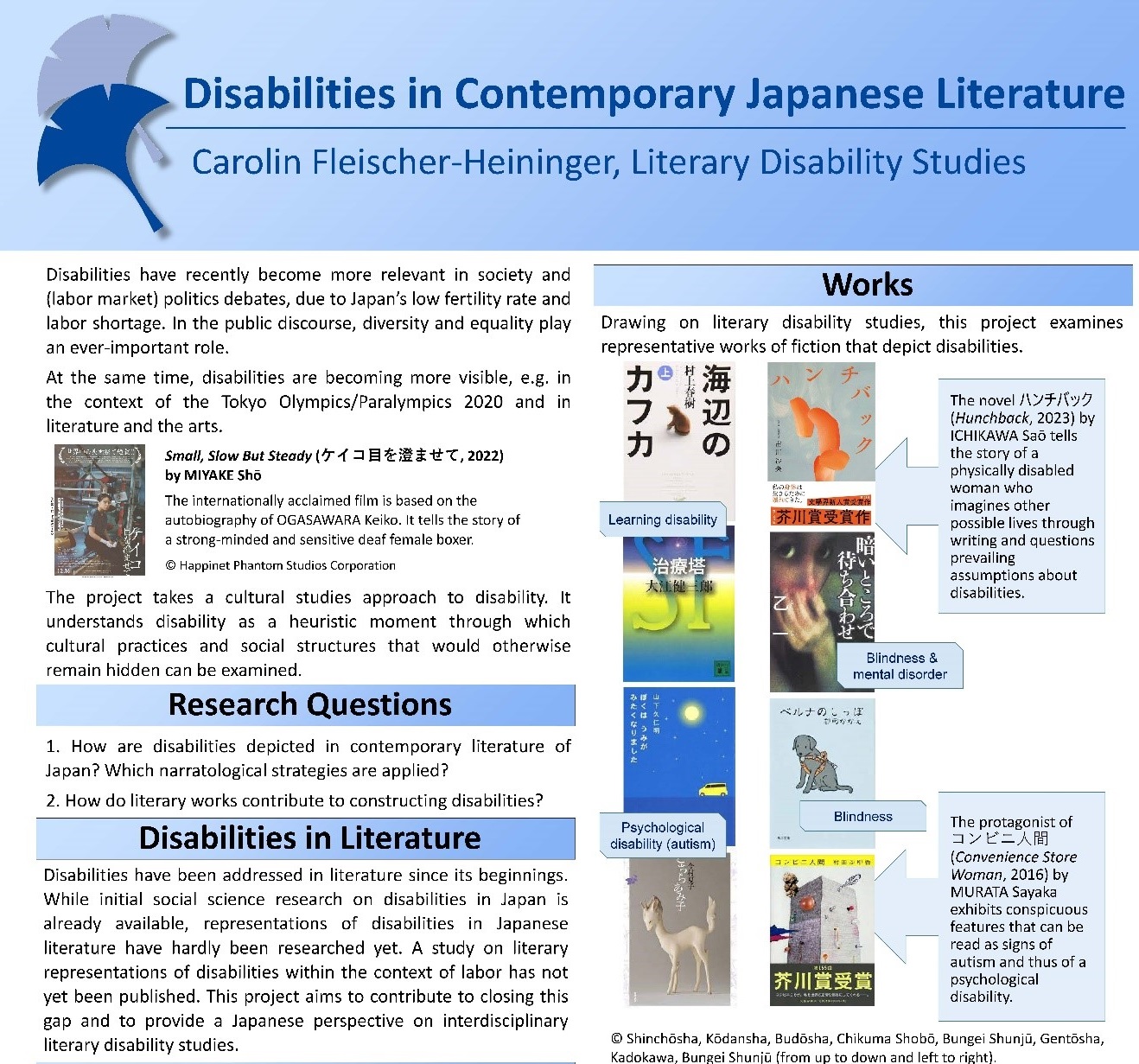
|
Poster © DIJ
|
Representations of Disabilities Research
|
|
|
|
|
|

|
Poster © DIJ
|
Research into Japan's Future Imaginaries
|
Nicole Marion Mueller's project "Japan's Future Imaginaries of Extended Reality" analyses the connection between Sci-Fi narratives and technological innovation. Based on the theory of Sociotechnical Imaginaries, one focus of this research project is the instrumentalisation of these imaginaries in policy-making and by large tech corporations. Blurring the line between factual prognostics and idealized hopes, imaginaries are created to regulate public perception of and attitudes toward emerging technologies. For more on this project, see Nicole's research poster.
|
|
|
|
|
|
DIJ News ・Aus dem DIJ・研究所ニュース
|
|
|

|
Photo © private
|
DIJ Welcomes New Research Fellow
|
In February, Dolf-Alexander Neuhaus (PhD FU Berlin, 2022) has joined our team as senior research fellow. Dolf's research interests include the modern history of Japan and Korea as well as their transregional entanglements with Asia, the history of education, and the history of Christianity in Asia. At the DIJ, he conducts research on Japanese development aid projects and on the dissemination and adaptation of technical education and assistance in Asia with a focus on changing discourses on Asia in Japan during and after the Cold War. We warmly welcome Dolf to the DIJ team!
|
|
|
|
|
|

|
Photos © private
|
|
Visiting Researchers at the DIJ
|
In January and February, the DIJ hosted Sigrid Haunberger (Institute of Social Management, Zurich University of Applied Sciences) and in March Florentine Koppenborg (Environmental and Climate Policy, Munich School of Politics and Public Policy) as visiting scholars. Sigrid furthered her research on Japanese civil society, in particular volunteering with a special focus on the elderly and urban-rural differences. Florentine conducted research on civil society organizations promoting climate action and energy transitions in Japan.
|
|
|
|
|
|
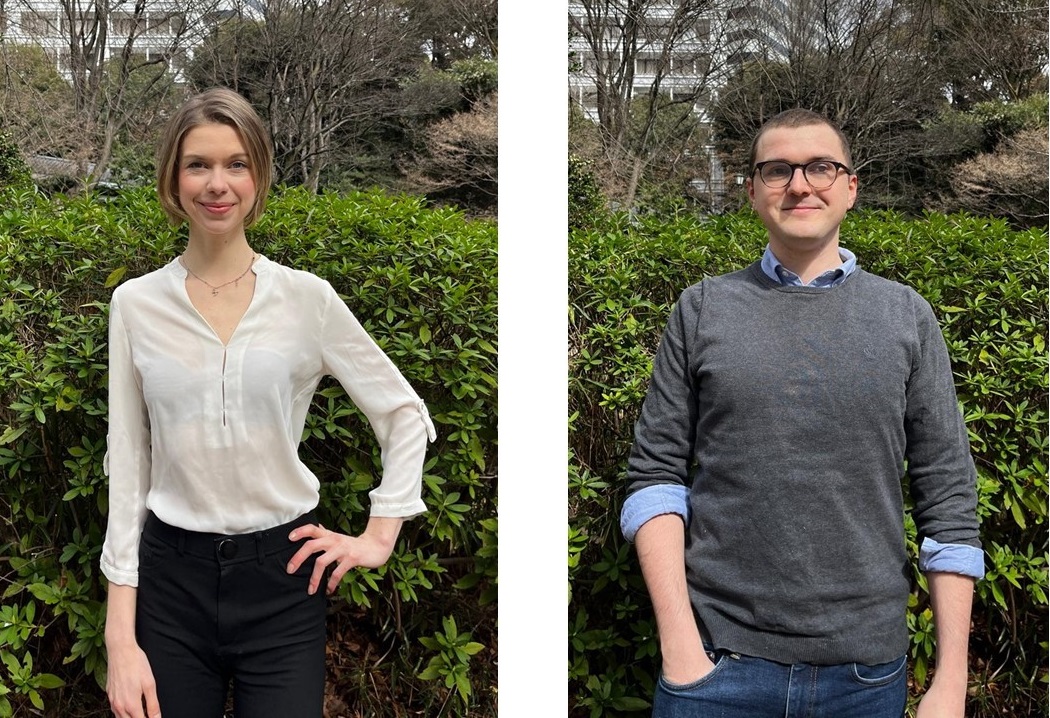
|
Photos © DIJ
|
|
New PhD Students at the DIJ
|
|
In February and March, we welcomed Felix Dröll (Law, Goethe University Frankfurt) and Alexandra Faust (Philosophy, Academy of Fine Arts, Vienna) as new PhD students. Felix researches the development of the abuse of right doctrine in German and Japanese law. In Japan, he conducts expert interviews with professors, lawyers, and judges to better understand the principle's theoretical background and practical application. Alexandra's project focuses on contemporary Japanese artists in Kyoto. In her research, she seeks to address the in-between of traditional and contemporary Japanese art.
|
|
|
|
|
|
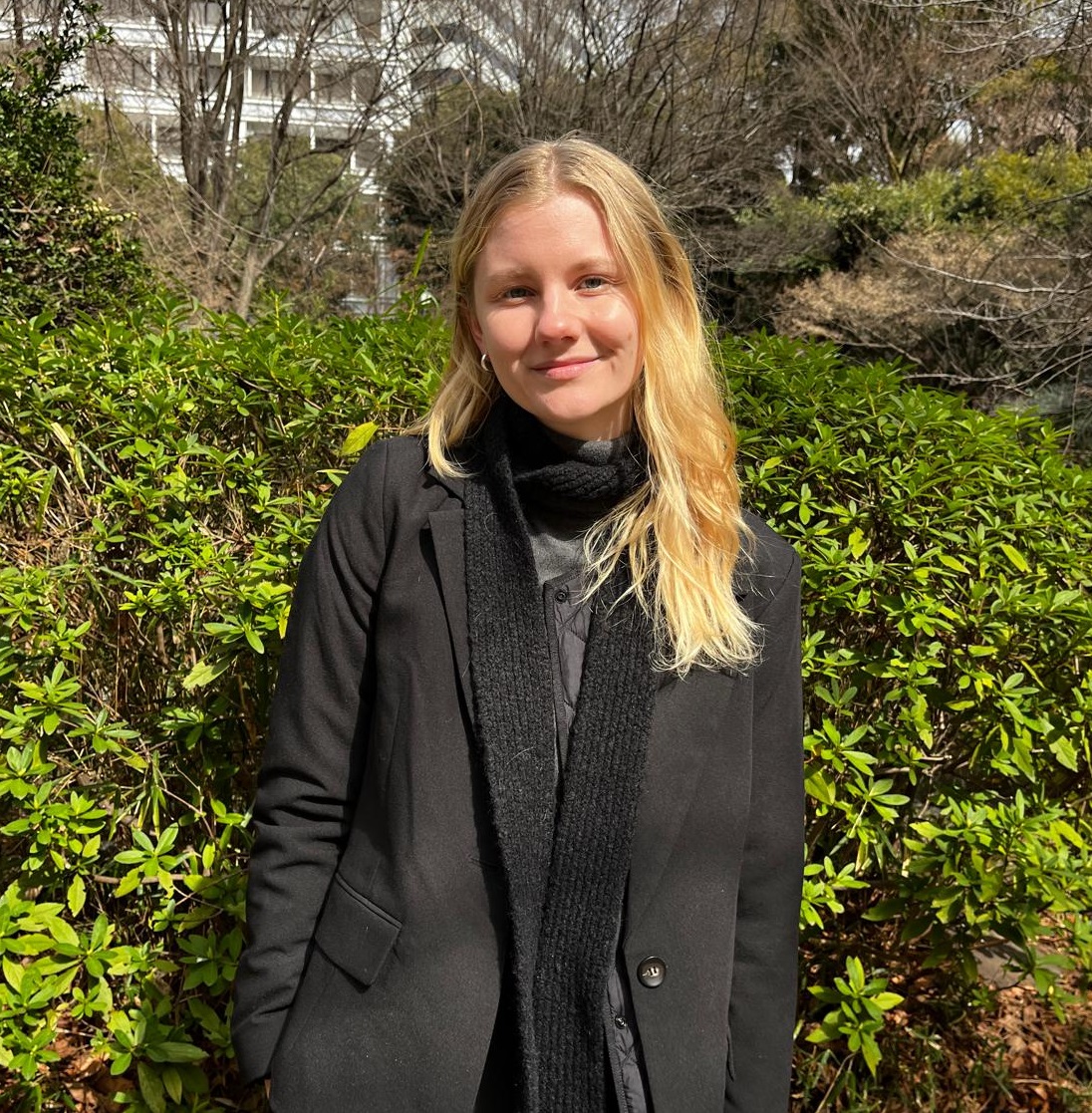
|
Photo © DIJ
|
|
Introducing Our Intern Tabea Rietz
|
|
In March and April, Tabea Rietz (Cultural Anthropology, Leipzig University) supports our team as an intern. She has a strong interest in memory politics and its intersection with transnational movements. At the DIJ, she supports Torsten Weber’s research into history politics in East Asia as well as the institute's science communication activities. If you are interested in joining our team as an intern, please see our guidelines here (in German). We look forward to your application!
|
|
|
|
|
|
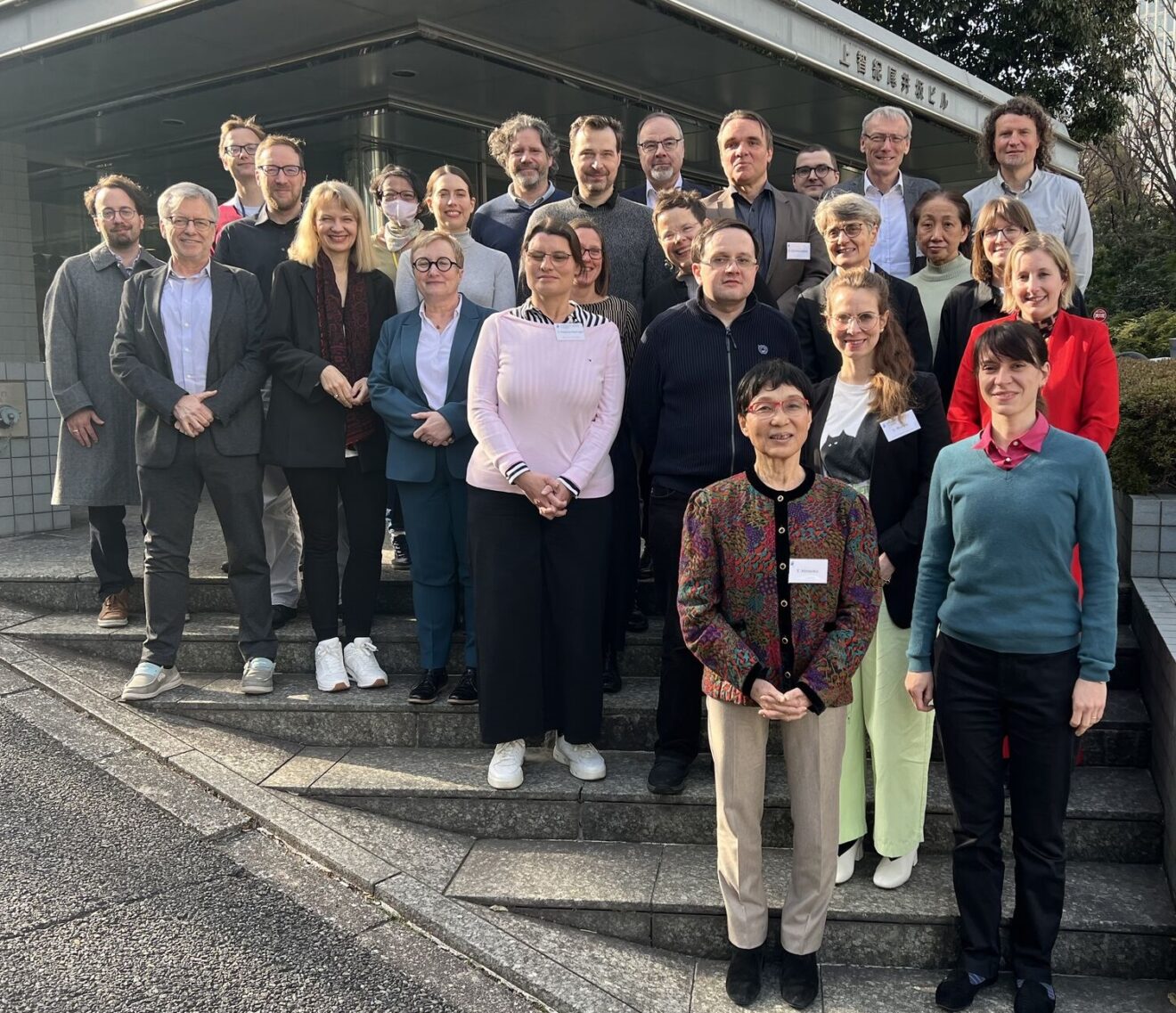
|
Photo © DIJ
|
|
DIJ Advisory Board Meeting in Tokyo
|
|
In March, our advisory board visited Tokyo and held its annual meeting at the DIJ. We are grateful for the advice we received, the constructive dialogue, and the many pleasant conversations. Special thanks to the outgoing advisory board members Verena Blechinger-Talcott (FU Berlin), Dietmar Harhoff (MPI for Innovation and Competition, Munich), Toshiko Himeoka (University of Tokyo), and Evelyn Schulz (LMU Munich) for eight years of support, including during the difficult period of the pandemic.
|
|
|
|
|
|
Upcoming Events ・Kommende Veranstaltungen・今後のイベント
|
|
|

|
Programme © DIJ
|
|
Online Conference on Dealing With China
|
|
Given China’s economic and geopolitical importance, China cannot be ignored, passed, or de-coupled. It is at the same time a partner, a competitor as well as an ideological and potential military opponent. On 4 April, five European and Japanese China experts from academia and business will discuss how to balance different approaches and understandings of China's role in the evolving multipolar world order. The online conference How to deal with China is organised by Global Asian Studies (University of Tokyo), the Japan Association of Corporate Executives, and the DIJ. Registration is available here.
|
|
|
|
|
|
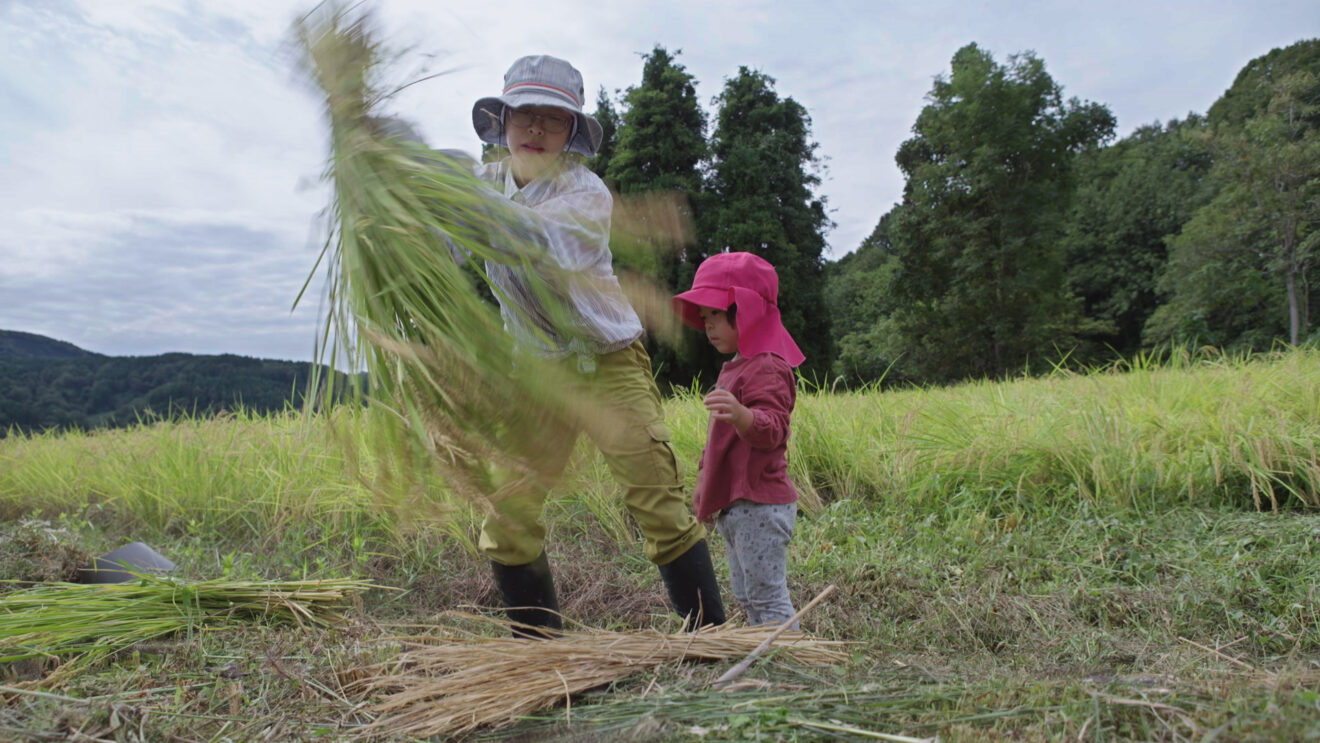
|
Photo © Sonja Blaschke
|
DIJ Forum 'Moving to Rural Japan'
On 9 April, our DIJ Forum Moving to rural Japan – Film Screening and Discussion will combine two different perspectives on migration patterns from urban to rural Japan. Filmmaker and journalist Sonja Blaschke will introduce her 30-minute documentary film “Reisfeld statt Tokio” ("Rice paddies instead of Tokyo", in German, with English subtitles), highlighting the story of a young urban woman and her new lifestyle in a small village in rural Japan. The film screening will be followed by Tomoo Matsuda's (Mitsubishi Research Institute) presentation on urban professionals who decide to live in Japan’s countryside. Please register here for participation.
|
|
|
|
|
|
Save the date - more upcoming DIJ events:
|
|
|
|
|
|
Past Event ・Vergangene Veranstaltung・最近のイベント
|
|
|
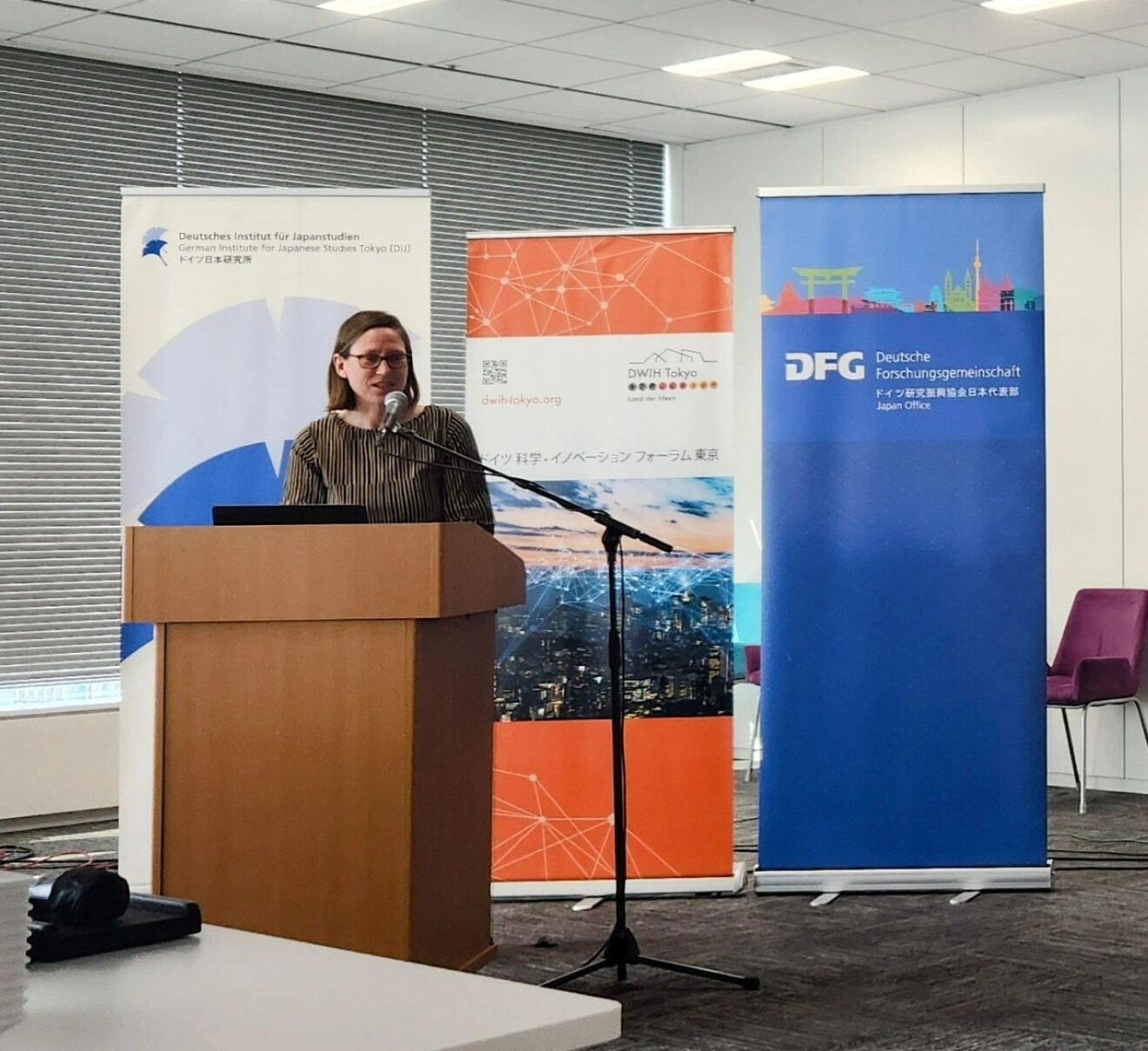
|
Photo © DWIH Tokyo
|
Panel 'Human-Machine Interaction'
When humans and machines interact, what kind of relationships do they form? At the workshop Relationship in Human-Machine Interaction, six keynote speakers shared insights into the relationship-building aspects of humans and robots, avatars, or devices. Their talks covered social psychology, media studies, computer science, and engineering, including a presentation by DIJ's Celia Spoden (photo) on avatar robots as alter ego for hospitalized students. Organised by the German Research Foundation (DFG) and the German Centre for Research and Innovation Tokyo (DWIH Tokyo), the workshop was supported by the DIJ.
|
|
|
|
|
|
DIJ in the Media ・ In den Medien・メディアで知るDIJ
|
|
|
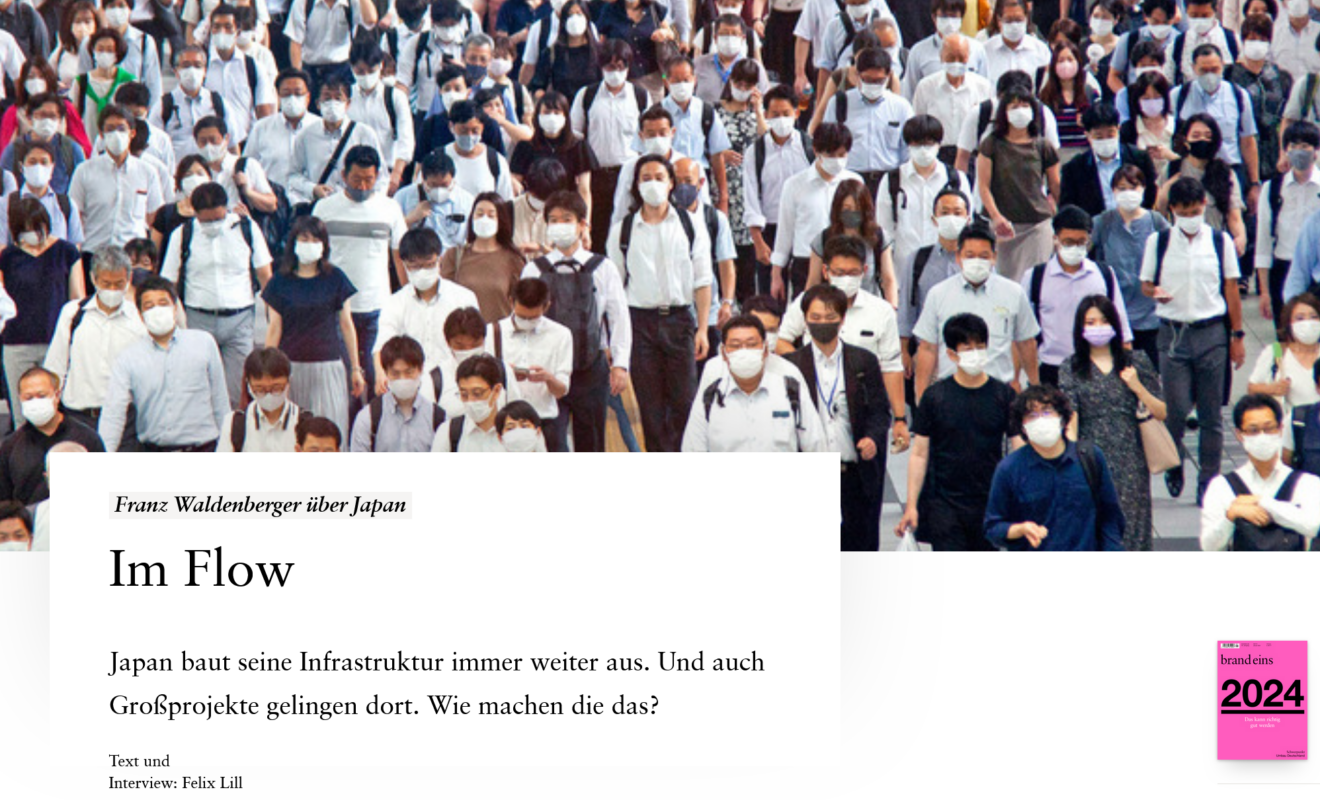
|
Screenshot © brand eins
|
Japanese Infrastructure "In the Flow"
|
|
In an interview with German monthly Brand Eins (January 2024), DIJ director Franz Waldenberger explains how investments in infrastructure and transport planning have given Japan a mobility advantage over Germany. According to Waldenberger, public transport in Japan works much better than in Germany because more resources are used and transport is better planned. Waldenberger also points to the relatively time- and cost-efficient realisation of major construction projects in Japan, which only causes minor disruption in everyday life.
|
|
|
|
|
|
Alumni News ・Unsere Ehemaligen ・DIJ 同窓会
|
|
|
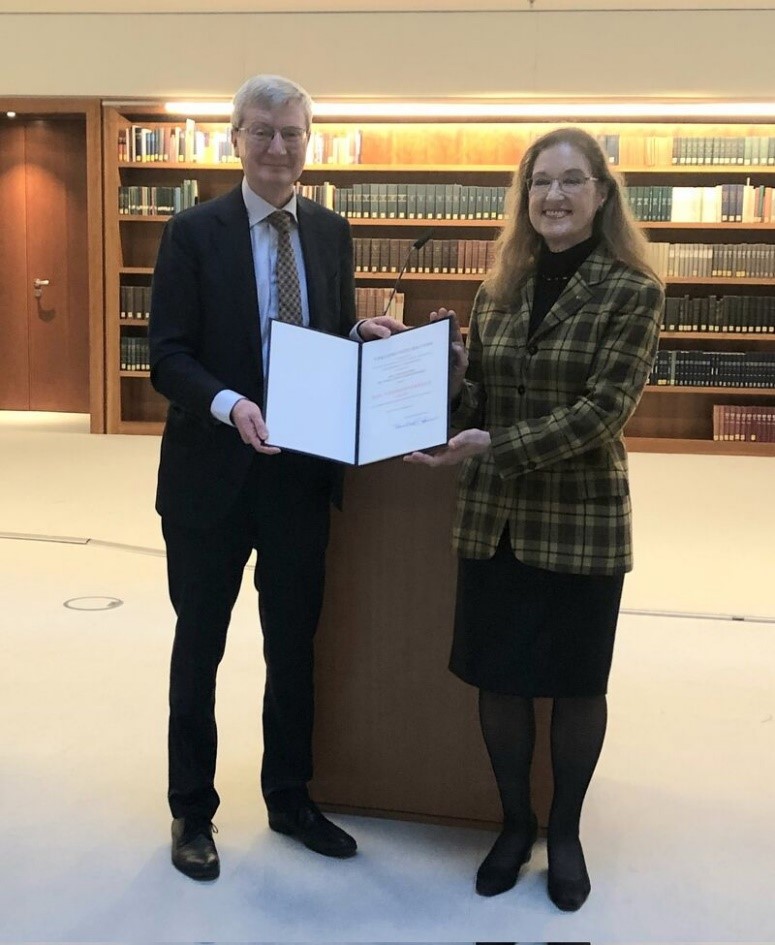
|
Photo © GERonAsia on X
|
High Honours for Former DIJ Director
In February, former DIJ director Irmela Hijiya-Kirschnereit (1996–2004) was awarded the Federal Cross of Merit First Class at the Foreign Office in Berlin for her outstanding contributions as an academic and cultural mediator between Germany and Japan. As director at the DIJ, she had established a research focus on Japan in Asia and initiated the compilation of a three-volume Japanese-German dictionary which was recently completed.
|
|
|
|
|
|

|
Photo © private
|
In Memoriam Maik Hendrik Sprotte
|
|
We were very sad to learn that our alumnus Maik Hendrik Sprotte passed away suddenly in December 2023 after a short illness at the age of 59 years. As a PhD student at the DIJ in the summer of 1997, Maik undertook research for his doctoral dissertation on Socialist movements in the early Meiji period. He received his PhD in 2001 at Bonn University and later held teaching and research positions in Tokyo, Heidelberg, Halle-Wittenberg, Leipzig, Duisburg-Essen, and at FU Berlin. The latest episode of the Japan und dann das podcast series (in German), produced by DIJ alumnus and Maik's former colleague Axel Klein, is dedicated to the memory of Maik's life and academic achievements.
|
|
|
|
|
|
|
If you are part of the growing group of DIJ alumni and have recently published a book or have any other news to share with us, please contact us via newsletter@dijtokyo.org
|
|
|
|
|
|
Social Media ・Soziale Medien・ソーシャルメディア
|
|
|

|
Screenshot © X
|
Why wait until June? More DIJ News on X!
In June, the next issue of the DIJ Newsletter will provide you with updates from our institute again. If you don't want to wait until summer, we invite you to join our currently 1.266 followers of the DIJ's social media account on X (Twitter). In this way, you will be the first to receive announcements of upcoming events, new publications, other activities of our institute and its researchers, job and fellowship advertisements, and much more. Follow us here!
|
|
|
|
|
|
|